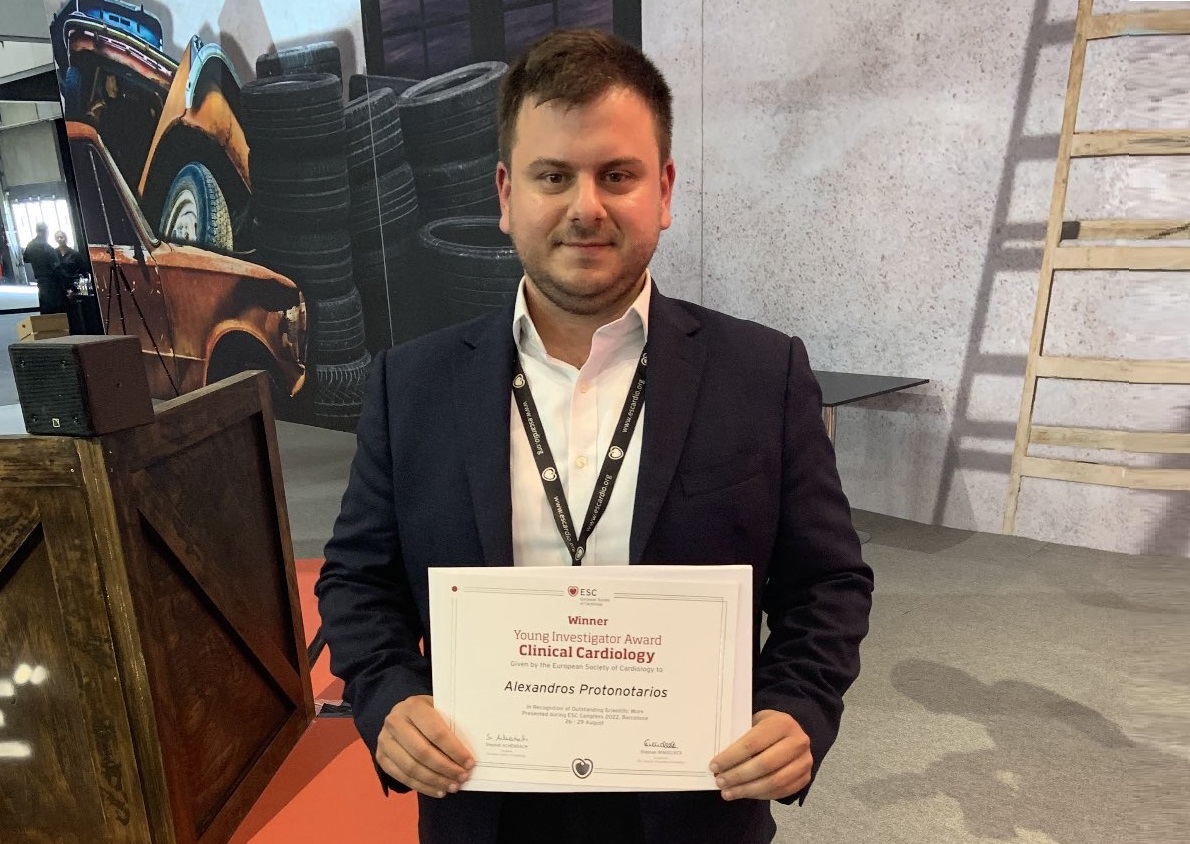Dr Alex lifts lid on gene linked to sudden death in young

A St Bartholomew’s academic has been recognised for helping to predict sudden cardiac death in young people.
Dr Alex Protonotarios, who has been a clinical fellow at our hospital for the past five years, received the Young Investigator Award from the European Society of Cardiology.
His research looked at patients with arrhythmogenic right ventricular cardiomyopathy (ARVC), a form of heart disease affecting the heart muscle that usually appears in adolescence and adulthood.
ARVC is caused by faulty genes and can often lead to sudden, unexplained death, particularly in young and athletic people.
Alex showed that the risk of sudden cardiac death – when the cause of death is attributed to something wrong with the structure of the heart – varies according to the affected gene.
His findings can be used by the medical community to prevent future deaths, including offering implantable cardioverter defibrillators to those at the greatest risk.
More than 400 people under the age of 35 suffer from sudden cardiac death in the UK every year. It is estimated that there are about 10,000 people affected by ARVC.
Alex was inspired to undertake the research after seeing the impact that sudden cardiac deaths can have on people’s lives. He believes he is the first person to claim the Congress prize for work in this area.
He said: “An award such as this gives you credibility to pursue further funding, attract more people to work on this topic and improve research efforts and outcomes.”
Alex was successful in the 'clinical cardiology' category at the Society’s annual Congress in Barcelona.
